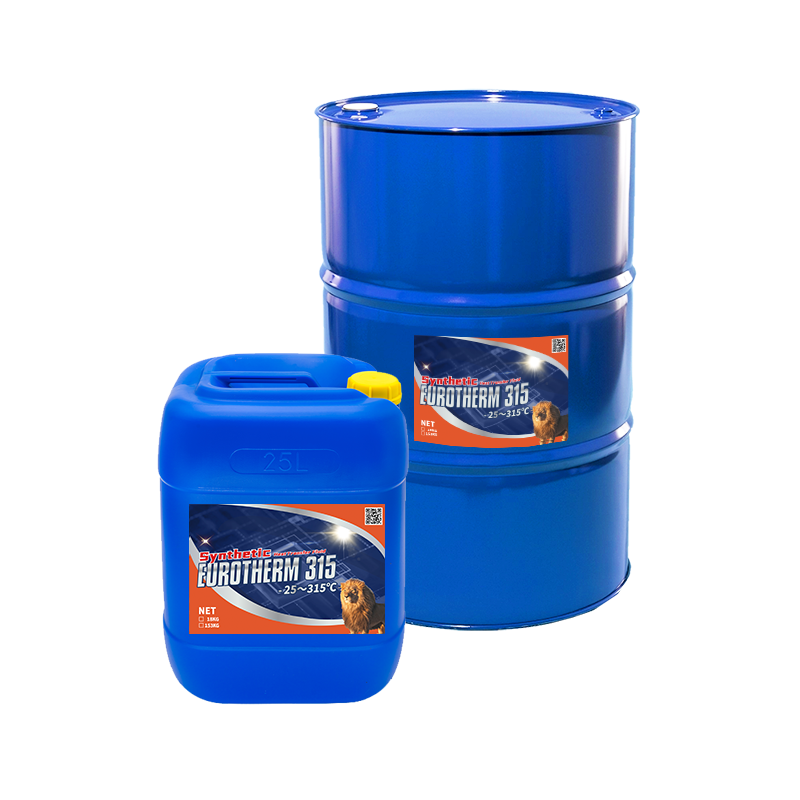Why Picking the Right Heat Transfer Fluid Is Crucial for Optimal System Efficiency
Picking an appropriate warmth transfer fluid is a crucial choice that can significantly impact system performance and functional prices. As the effects of this option expand far beyond prompt performance, recognizing the nuances of fluid option becomes necessary for anyone looking to accomplish optimum system efficiency.
Value of Heat Transfer Fluids
What role do heat transfer liquids play in commercial processes? Warm transfer liquids are essential for the effective transfer of thermal power within various commercial systems. They promote the movement of warm from one area to an additional, guaranteeing that procedures run within ideal temperature varieties. Their key function is to take in warmth from a resource, such as a heater or activator, and deliver it to an end user, like a warmth exchanger or purification column.
The choice of heat transfer fluid can considerably affect energy efficiency, equipment, and safety long life. Liquids have to be qualified of holding up against high temperature levels and stress without breaking down, in addition to exhibit marginal volatility and reduced toxicity. Their performance straight impacts not only the productivity of the system yet additionally its operational costs.
In addition, warmth transfer liquids play an essential duty in preserving process control, making certain that temperature level variations are lessened. This is especially important in delicate applications such as pharmaceuticals and petrochemicals, where exact temperature monitoring is vital. In general, the importance of choosing the best heat transfer liquid can not be overemphasized, as it is important to maximizing commercial processes and boosting general system performance.
Secret Residence to Consider
When picking a heat transfer liquid, which essential residential or commercial properties should be focused on to guarantee optimum performance? Most importantly, thermal conductivity is vital; a liquid with high thermal conductivity will effectively transfer warmth, minimizing power loss. In addition, the particular warm capacity of the fluid is essential, as it determines just how much energy the fluid can launch and store, affecting overall system responsiveness.
Viscosity is an additional significant property to consider, as it influences the liquid's circulation features; lower viscosity liquids are generally chosen for much easier blood circulation and lowered pumping energy. The fluid's temperature range is just as crucial; it should do effectively within the functional temperature levels of the system without evaporating or weakening.
Chemical stability is vital to protect against deterioration gradually, which can bring about system inadequacies and possible failings - dielectric cooling fluid. In addition, compatibility with system materials ought to not be overlooked to avoid corrosion or damage to parts. Think about the ecological effect and safety account of the fluid, as guidelines and sustainability goals progressively influence fluid option. By focusing on these essential residential properties, one can choose a heat transfer liquid that improves system resilience and integrity.

Effect On System Performance
The choice of heat transfer fluid directly affects system performance, affecting both energy intake and functional efficiency. A fluid's thermal conductivity, viscosity, and heat capability play essential duties in just how effectively it transfers heat within a system. Ideal fluid properties guarantee that warmth is soaked up and dispersed see this site successfully, decreasing power losses and enhancing the total efficiency of the system.

Furthermore, the compatibility of the liquid with system materials can considerably impact efficiency. A liquid that causes rust or deterioration can bring about leaks and system failures, even more reducing performance. In recap, the right warm transfer fluid not only makes best use of energy efficiency and minimizes expenses yet additionally boosts the integrity and longevity of the system, making it an important consideration for engineers and decision-makers in thermal management applications.
Common Sorts Of Heat Transfer Fluids
A variety of heat transfer fluids are typically employed in thermal management systems, each with distinct residential properties matched to details applications. Water is just one of the most widely used heat transfer liquids as a result of its high details warm capability, inexpensive, and availability. However, its cold factor limits its use in low-temperature applications.
Thermal oils, commonly stemmed from petroleum, are another preferred selection, especially in high-temperature systems. These fluids can run at raised temperatures without vaporizing, making them optimal for commercial applications. They may have constraints worrying thermal stability.
Refrigerants, made use of mostly in cooling systems, have unique thermodynamic buildings that enable reliable warmth transfer at low temperatures. Their selection is critical to make certain efficiency and compliance with ecological policies.

In addition, phase modification products (PCMs) are obtaining grip for their ability to absorb and release significant amounts of heat during phase changes, supplying an unique service for thermal energy storage. Each fluid's particular qualities need to be examined for ideal efficiency.
Finest Practices for Choice
Choosing the suitable heat transfer liquid involves careful factor to her explanation consider of a number of vital aspects that align with the details demands of the application. Second, consider the liquid's thermal conductivity, which impacts warmth transfer prices; higher thermal conductivity usually leads to enhanced performance.
In addition, review the fluid's thickness, as it influences pumping power and general system performance. Lower thickness liquids normally decrease power consumption throughout blood circulation. Compatibility with system materials is another important aspect; guarantee that the fluid does not trigger corrosion or deterioration of parts and pipes.
Following, consider the fluid's security and durability, particularly in high-temperature applications. A steady liquid minimizes maintenance and substitute costs. Finally, ecological and safety guidelines should assist your option process, emphasizing environmentally friendly and safe alternatives when possible.
Verdict
Finally, selecting the suitable warm transfer fluid is crucial for achieving ideal system effectiveness. The appropriate liquid boosts thermal conductivity, reduces energy losses, and promotes equipment longevity, eventually resulting in enhanced system reliability and efficiency. Comprehending the crucial residential properties and effects of various liquids on system efficiency is important for educated decision-making. Sticking to ideal methods in liquid choice can cause substantial lasting expense financial savings and operational efficiency. next
Warm transfer fluids are essential for the reliable transfer of thermal power within various commercial systems. In addition, the certain heat capacity of the liquid is important, as it determines how much power the liquid can launch and keep, affecting overall system responsiveness.
Take into consideration the ecological effect and safety account of the fluid, as regulations and sustainability objectives progressively affect fluid option - heat transfer fluid. A liquid's thermal conductivity, viscosity, and warm capacity play essential roles in just how effectively it moves heat within a system. Water is one of the most extensively utilized warm transfer liquids due to its high particular warmth capacity, reduced price, and accessibility
Comments on “Why Propylene Glycol is a Preferred Choice for Efficient Heat Transfer Fluid”